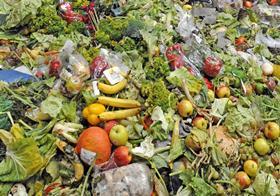
Energy from food waste has been given a “vital boost” after parliament approved higher energy tariffs for green gas companies.
From 22 May, companies providing energy by anaerobic digestion will be able to claim a restored tariff of 5.6p per kWh of renewable heat generated for their Tier 1 biomethane.
Anaerobic digestion plants generate biomethane, or ‘green gas’, through breaking down organic wastes such as sewage, food waste, and agricultural waste and purpose-grown energy crops, which are often grown as part of an agricultural rotation. Green gas can then be burned to generate renewable heat.
Deployment of new green gas plants in the UK has been falling in recent years in line with decreases in RHI tariff levels. The green gas industry is now forecasting that as many as 40 plants may be built over the next two years as a result of the restored tariff levels, generating up to an additional 2 TWh of renewable heat per year.
The green gas industry currently contributes over 4 TWh of gas per year, but with the right support has the potential to meet around 15% of total UK gas consumption and heat 30% of UK households, according to the Anaerobic Digestions and Bioresources Association (ABDA).
Charlotte Morton, chief executive ABDA, said: “Green gas produced through AD not only produces much lower levels of emissions than natural gas but is also home-grown, allowing the UK to increase its energy security and be less reliant on energy imports from abroad. AD is already reducing gas imports by 2% and has the potential to reduce them by as much as 16%.
“The restored RHI tariffs will give a vital boost to the AD industry’s ability to produce green gas over the next few years, but with emissions from heat accounting for a third of all UK greenhouse gas emissions and no clear government strategy yet identified for decarbonising heat, it’s imperative that the government commits to long-term support for green gas beyond 2020 while the industry works to bring down costs to become financially self-sufficient.”



